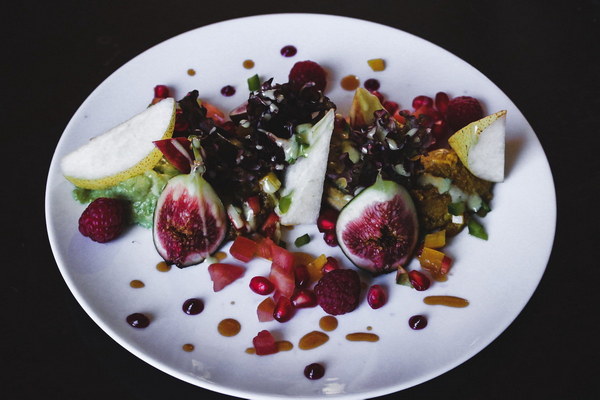The Art of Longevity Unveiling the Secrets of Traditional Chinese Medicine for Wellness
In the pursuit of wellness and longevity, traditional Chinese medicine (TCM) offers a holistic approach that has been practiced for thousands of years. Rooted in the belief that the body, mind, and spirit are interconnected, TCM focuses on balancing the body's energy, or Qi, to maintain health and prevent disease. This ancient healing system has provided a wealth of knowledge on how to achieve a balanced and fulfilling life. Let's explore some key principles of TCM and how they can be integrated into your daily routine for optimal health.
1. Acupuncture and Moxibustion
Acupuncture, a cornerstone of TCM, involves inserting fine needles into specific points on the body to unblock energy pathways and promote healing. Moxibustion, on the other hand, uses heat therapy to stimulate these same points. Both techniques are effective for treating a wide range of conditions, from chronic pain to stress and anxiety.
2. Herbal Medicine
TCM utilizes a vast array of herbs and natural substances to address specific health concerns. These herbs are often combined in formulas to create a synergistic effect, targeting the root cause of the illness rather than just the symptoms. For example, ginseng is known for its energy-boosting properties, while ginger can aid digestion and reduce inflammation.
3. Diet and Nutrition
In TCM, the diet plays a vital role in maintaining health and balancing the body's energy. Each food has its own properties, and certain foods are recommended for specific conditions. For instance, sweet and sour flavors are believed to nourish the heart and liver, respectively. Additionally, TCM emphasizes the importance of seasonal eating, as the body's energy changes with the seasons and consuming appropriate foods can help maintain balance.
4. Tai Chi and Qigong
These gentle, low-impact exercises are designed to enhance the flow of Qi in the body. By focusing on breathing, movement, and meditation, Tai Chi and Qigong help improve flexibility, balance, and overall well-being. These practices also reduce stress and promote relaxation, making them excellent tools for stress management and preventive care.

5. Lifestyle and Attitude
In TCM, a healthy lifestyle is crucial for maintaining balance and preventing disease. This includes getting adequate sleep, avoiding excessive stress, and cultivating a positive mindset. Practicing mindfulness, gratitude, and forgiveness can also contribute to overall wellness.
6. Acupressure and Massage
Acupressure involves applying pressure to specific points on the body to stimulate the flow of Qi. This can be done using the fingertips, knuckles, or elbows. Massage therapy, another TCM practice, helps to release muscle tension, improve circulation, and promote relaxation.
7. Herbs and Spices
In addition to herbal medicine, TCM also utilizes various herbs and spices in cooking. For example, turmeric, a spice commonly used in Indian cuisine, has anti-inflammatory properties. Cinnamon is known for its ability to improve blood sugar levels and support digestion.
Incorporating these TCM principles into your daily life can help you achieve a state of balance and wellness. By addressing the root causes of illness rather than just the symptoms, TCM can provide a lasting solution for many health concerns. So, why not embrace the wisdom of traditional Chinese medicine and embark on a journey towards a healthier, happier life?









